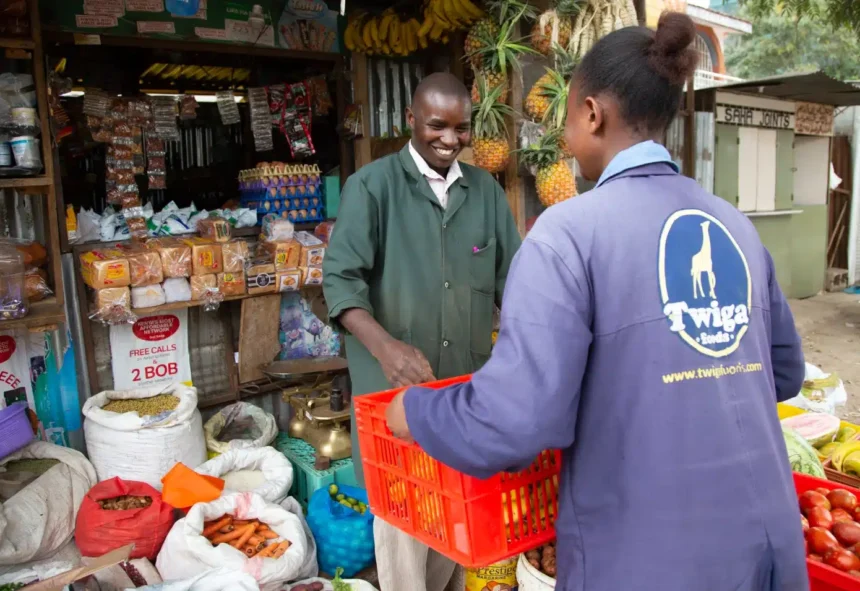It remains to be seen how these recent acquisitions and restructuring efforts will play out for Twiga Foods. The company has been a key player in the Kenyan agritech sector, revolutionizing the way fresh produce is sourced and distributed. With these new moves, Twiga is clearly looking to expand its footprint and diversify its offerings in the market.
As for Vendease, the closure of its operations in Ghana serves as a cautionary tale for startups looking to scale across borders. Despite initial success in the market, the company faced challenges with funding and operational efficiency. It’s a reminder that expanding into new territories requires careful planning and a solid financial foundation.
Lastly, the upcoming Lagos Startup Expo promises to be a valuable event for entrepreneurs and startup enthusiasts. With a focus on practical learning and interactive sessions, attendees can expect to gain valuable insights and tools to help grow their businesses. The event’s emphasis on hands-on activities and real-world solutions sets it apart from typical tech conferences.
Overall, these recent developments in the African tech ecosystem highlight the challenges and opportunities facing startups in the region. From expansion efforts to event highlights, there is no shortage of innovation and growth in the sector. As we look towards the future, it will be interesting to see how these companies adapt and evolve in an ever-changing landscape.
Stay tuned for more updates and insights from the African tech scene!
Twiga, a Kenyan tech startup, has recently been in the spotlight due to leaks from a whistleblower within the company. While the leaks have not been verified, they paint a troubling picture of Twiga’s internal operations. The allegations include claims of a tense work environment, micromanagement, poor systems, and racial bias favoring foreign executives over qualified Kenyan professionals. These claims, if true, point to deeper cultural issues within the company that need to be addressed.
The leaked information suggests that Twiga may be facing more significant challenges than just a need for strategy tweaks. Despite recent acquisitions that may appear to be part of a growth strategy, the reality could be that Twiga is actually in survival mode. The coming months will be crucial in determining whether Twiga can rectify its internal issues, rebuild trust, and focus on its mission to modernize Africa’s food supply chain, or if the restructuring drama will overshadow its goals.
In light of these revelations, it is essential for Twiga to address the cultural allegations and take concrete steps to improve its work environment. Transparency, accountability, and a commitment to diversity and inclusion will be key in rebuilding trust and moving the company forward.
As the tech industry in Africa continues to grow, it is imperative for companies like Twiga to set a positive example and prioritize a healthy and inclusive work culture. The success of these companies is not just measured by financial gains but by their impact on society and their ability to create a supportive and empowering environment for their employees.
In conclusion, while the leaks may have brought negative attention to Twiga, they also present an opportunity for the company to reassess its values, practices, and priorities. By addressing the cultural issues head-on and implementing meaningful changes, Twiga can emerge stronger and more resilient, ready to tackle the challenges of the future. the perspective of an environmental activist about the importance of protecting our planet for future generations.
As an environmental activist, I am deeply passionate about the need to protect our planet for future generations. The Earth is our home, and it is our responsibility to ensure that it remains a safe and healthy place for our children and grandchildren to live.
One of the most pressing issues facing our planet today is climate change. The burning of fossil fuels, deforestation, and industrial agriculture are all contributing to the rising temperatures and extreme weather events that we are experiencing. If we do not take action to reduce our carbon emissions and transition to renewable energy sources, we risk causing irreversible damage to the Earth’s climate system. This will not only have devastating consequences for the planet, but also for the people and animals that call it home.
Protecting our planet is not just about preserving the environment for its own sake. It is also about ensuring a sustainable future for humanity. As the population continues to grow, we are putting increasing pressure on the Earth’s resources. If we do not make changes now, future generations will be left to deal with the consequences of our actions. We must act now to protect our planet and ensure that there is enough clean air, water, and food for everyone.
In addition to addressing climate change, we must also work to protect biodiversity and ecosystems. The loss of species and habitats is a growing concern, as human activities continue to encroach on wild spaces. Protecting biodiversity is essential for maintaining healthy ecosystems that provide us with clean water, air, and food. We must work to preserve and restore natural habitats, so that future generations can continue to enjoy the beauty and benefits of a diverse and thriving planet.
Ultimately, the importance of protecting our planet for future generations cannot be overstated. We have a responsibility to act now to address the environmental challenges that we face, and to ensure that the Earth remains a safe and healthy place for all life. By taking action to reduce our carbon footprint, protect biodiversity, and preserve natural habitats, we can create a sustainable future for our children and grandchildren. It is up to all of us to work together to protect our planet and ensure a brighter future for generations to come.








